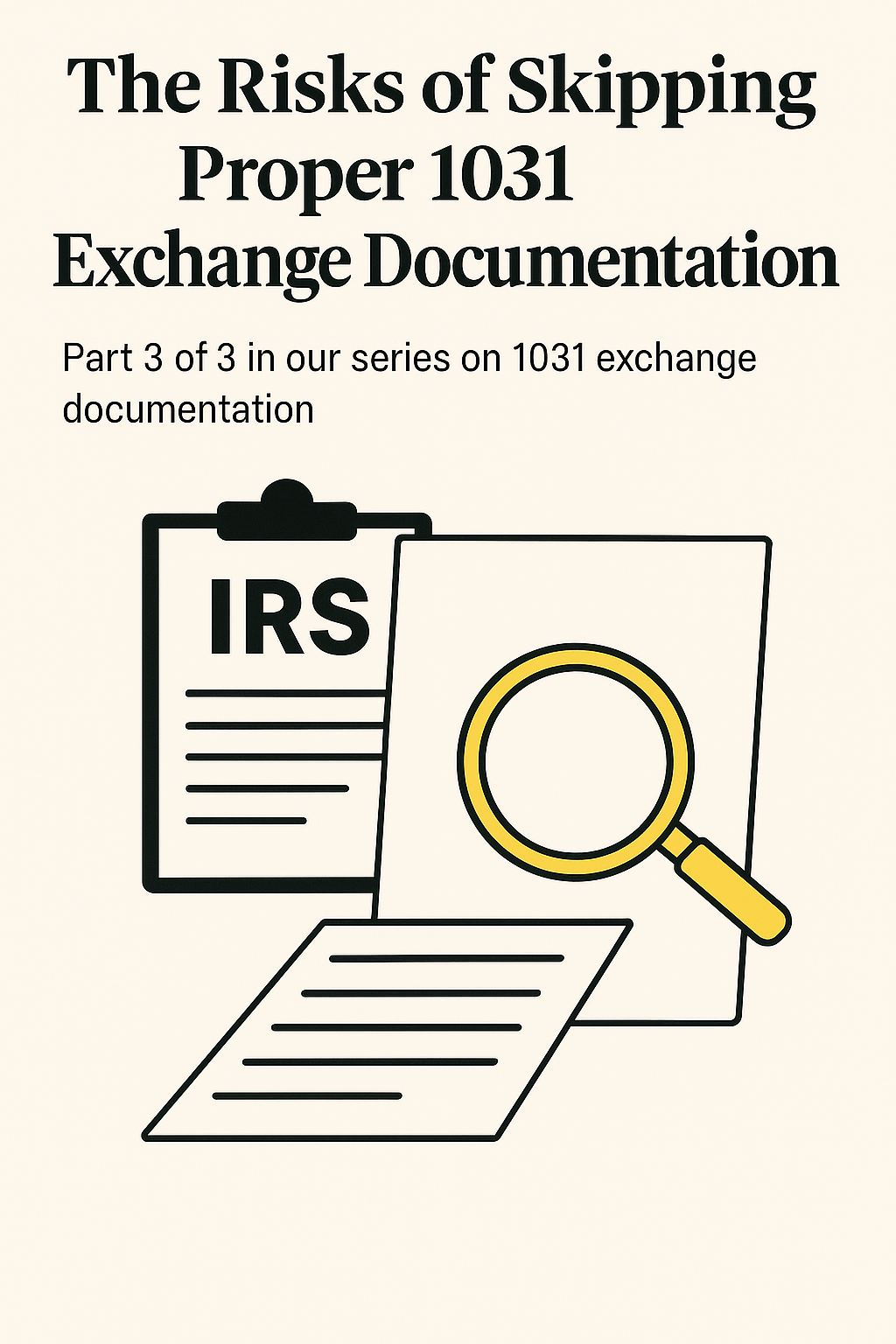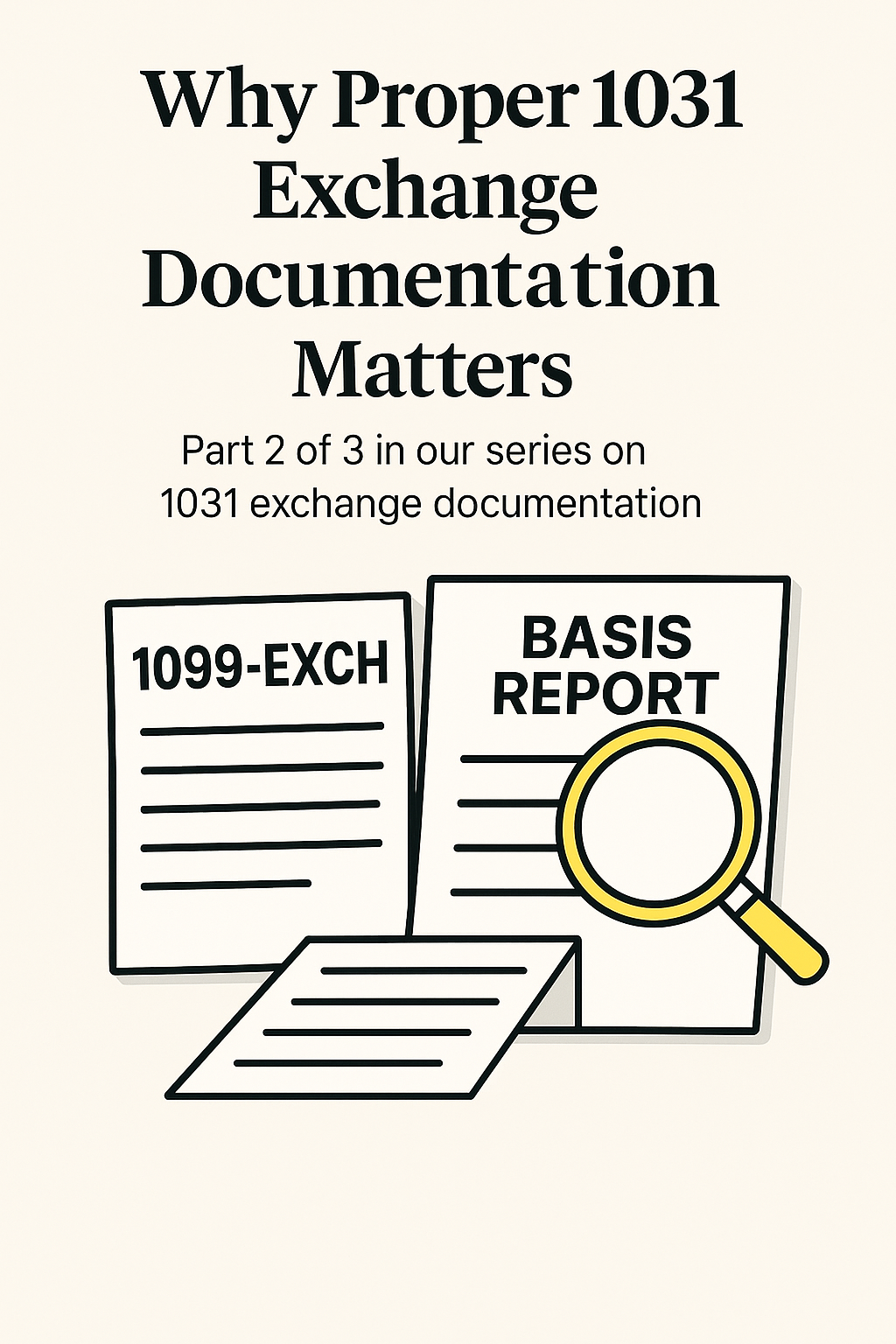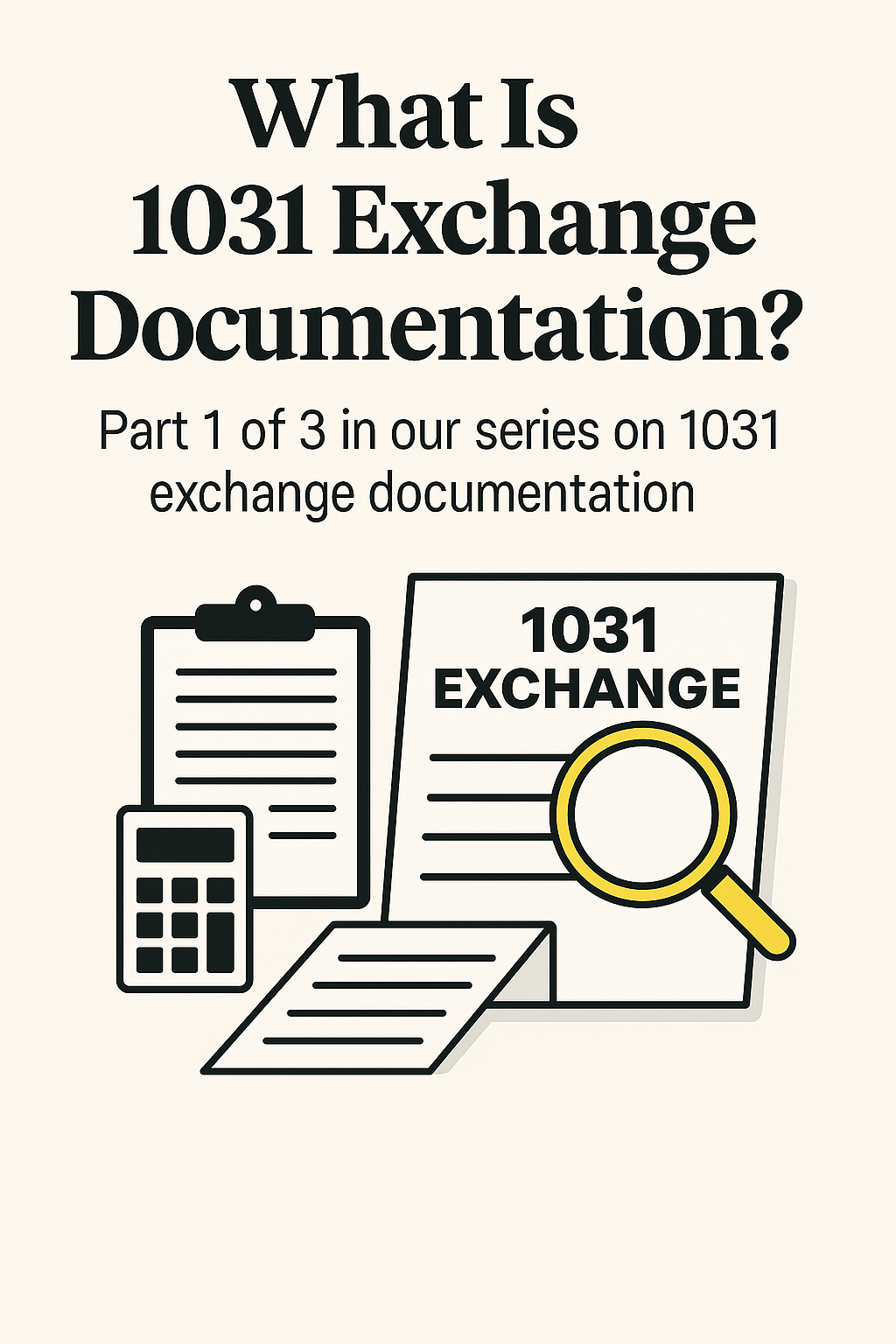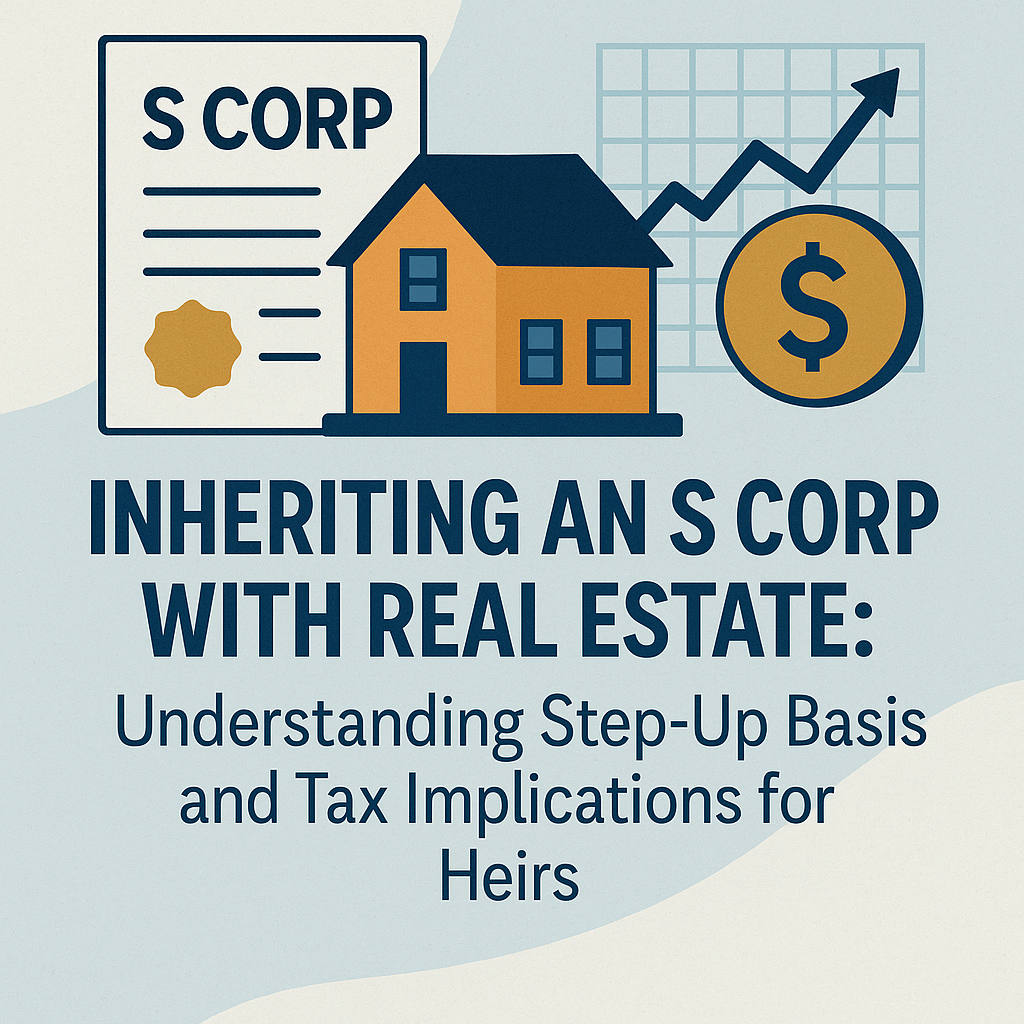Meet Hunter and Dolores
Their story is a little different. Instead of rental property, they owned a building that they used for their business. Hunter and Dolores were lucky enough to have lived longer than they could run their business, and the building ended up becoming their retirement fund. They needed liquidity, so they sold. The sale of the building qualified for a 1031 exchange.
Why This Is Important
Real estate investors not having liquidity and needing it as they age is not an uncommon story. We deal with these situations daily. What makes this case special is how far wrong things went once an amateur got involved.
The Planning Process
The planning process for a new client usually starts with a phone call and a review of the client’s tax returns. In this case, the details were discussed with the clients’ daughter. Upon reviewing the tax returns, several opportunities were found to shelter the cash from the exchange so that their tax bill would be reduced. The clients had a net operating loss and capital losses that would offset boot. They also had very low income, which meant some of their capital gain would not be taxed on the federal return.
After having a discussion with the referral partner who sent us Hunter and Dolores’s case and reviewing some replacement properties, we advised their daughter to have them take $300,000 out of the sale proceeds. Their tax would be less than $30,000 on the federal return and less than $10,000 on the California return. We even sent them vouchers to pay the tax before the money got spent or invested.
Things Go South
We can tell clients how to avoid tax and get more cash out of an exchange – but we don’t force them to follow the advice when they think they have a better idea. These clients’ ideas took them for a ride that was expensive, though not as expensive as it could have been.
Hunter and Dolores decided not to use the referral source that had brought them to us. They also had their new rep buy something a little different from what we had planned. That’s okay, but if they had told us what they were planning, we could have structured things better. Because they didn’t, their choice cost them about $18,000 in additional tax.
The big mistake they made next cost them $4,500 more.
The Old Tax Professional
The clients’ returns were straightforward, and their old tax professional had been competent enough at preparing them. However, he couldn’t advise them on executing their exchange, and no one knows why they thought he would be able to prepare a return that reflected it.
They did, though, and he tried. The preparer sat on the return for months, probably because he was unsure how to proceed. Around October 10, right before the filing deadline, the clients received their return with a note saying, “I am sorry it took so long, but here’s the return.” The note continued, “By the way, in addition to the $40,000 you paid, you owe $131,000!”
Here Comes the Call
Naturally, we got several panicked calls from the daughter. The escrow statements from the sale were obtained and purchase of the upleg, plus a copy of the tax return the clients were told to file. After reviewing these documents, we called the client’s daughter and told her that Mom and Dad did owe more tax, but only $18,000’s worth.
Past October 15, there are no more extensions. We advised the daughter that we couldn’t get the return prepared in time to meet the deadline and that they would likely incur some penalties. However, in having the return redone by a qualified professional, they saved about $115,000.
Conclusion
Hunter and Dolores almost paid a lot of tax they didn’t owe, and the fault lies with both our overly complex tax system and the fact that tax preparers seldom encounter 1031 exchanges. If you woke up one morning with heart trouble, you would go to a cardiologist, not a regular doctor. You would need the specialist. Likewise, when you are planning and executing a 1031 exchange, you need a specialist in the area.














